
In light of the recent Imus uproar and the way hip-hop is being scapegoated as the reason for his specific lashing of the Rutgers women, I offer excerpts of a chapter that was recently released in Parker Publishing's "Home Girls Make Some Noise: Hip-Hop Feminism Anthology," edited by Syracuse University associate professor Gwen Pough. Many of the topics I bring up in these excerpts were addressed on Oprah today. By the way, doesn't it suck that Oprah's first show on hip-hop had to be because a white man triggered a nerve that hip-hop is being blamed for? I mean, c'mon. I love Oprah. She's my hero. But, damn!! She is just now dealing with hip-hop? And look at the level on which it is being talked about. Oh well, the good thing is that Dr. Chavis and the Spelman girls agreed to work together. Let's just hope this time around they don't leave out the voices of the rapper and the stripper and the video "ho"neys that somehow got overlooked when they and Essence were trying to "Take Back the Music." Anyway read on and I welcome your comments. What are the issues? Is it hip-hop? Is it the hip-hop industry? Is it poverty? Is it racism and sexism in a much global perspective? Where does it begin and end? What does Imus' "ho" movement have to do with hip-hop's "ho" movement? These are just some of the thoughts that race through my mind as I continue to believe that once again, hip-hop culture, African American culture, and our styles and issues are being co-opted to take the gaze off a much bigger and more real problem. I recognize that I have pissed some people off with this chapter and its thoughts. But hell, I'm known for asking and suggesting some pretty complex questions and answers. I've been called a hip-hop anti-feminist. Ok, I take that because I really don't know what a hip-hop feminist is anyway. So, with that said, I give to you my thoughtful (and controversial) excerpts. By the way, you can go to amazon.com to order the book!!!
Tip Drills, Strip Clubs, and Representation in the Media: Cultural Criticisms from the POV of an African American Southern Hip-Hopper
"I spent New Year’s Eve 2005 with my sister and some of our friends. Instead of getting dressed up, putting on our stilettos, going out on the town, and getting caught up in Atlanta traffic, we invited people over to her house to play cards, jam to CD compilations, and get our “drink on” free from crowds, long lines, bar tabs, and tips. Like at most New Year’s gatherings, we chatted about resolving old habits, and bragged about creating new ones. We danced and celebrated as 2004 approached past tense. We laughed and sang in between rounds of Budweiser brews, Hennessey and Coke, apple martinis, and repeated games of spades and poker. We watched a little bit of TV. Or better yet the TV watched us. Every now and then we flipped between the live broadcast of Dick Clark’s New Year’s Rockin Eve and Black Entertainment Television’s (BET) pre-recorded, end-of the-year bash.
Our exaltations were interrupted around 3 o’clock [AM] when a music video called “Tip Drill” aired on UnCut, BET’s late night video show. Known for presenting music videos designed around strip club culture and lifestyle, the show is the media giant’s way of legally airing pornographic videos that would otherwise land them in hot water with the FCC if shown on primetime shows like 106 & Park and Rap City. “Tip Drill” stood out from all the other double X-rated videos placed in the show’s rotation. Performed by Nelly and produced by Jackson, Mississippi rapper David Banner, the song is an ode to guhls (southern hip-hop for girls) with big bootys (or what Nelly calls “apple bottoms”) who shake what their mama gave them for a lil’ bit (or a lotta bit) of cash. Shot at the house of ex-Falcons cornerback/safety Ray Buchanan, the video consists of girl-on-girl activity centered around popular strippers like Whyte Chocolate and Babygirl and Jermaine Dupri, Jagged Edge, David Banner, and the members of Nelly’s St. Lunatics slapping ass, throwin’ dollars, and chanting “I said it must be ya ass cuz it ain’t yo face. I need a tip drill. A tip drill.”
Card playing ceased within a short instance. Drinks got sat down on the living room’s coffee table. I turned down the stereo music and beefed up the audio from the television. “What the [expletive]…” one of my sister’s friends mumbled. “Did they just swipe that [credit] card through her [expletive] …”, asked another. Everyone was stunned. Our eyes remained glued to the television in disbelief. At one point in the video, three ladies grinded up against each other in a bathtub. In another scene, a woman insinuated oral sex by flicking her tongue in front of another girl’s crotch. I couldn’t believe it! Strip club culture was headed to the mainstream.
My disgust, however, was not the ass-dropping acrobatic moves of the strippers. I’ve been to the strip club, and to be honest, I think some of the moves are quite artsy. Like when the ladies slide down those tall silver poles. It takes a lot of strength and endurance to suspend the body in the air like that. I wasn’t even tripping about the lap-dancing or the tasteless comment made to Whyte Chocolate by Shawty the comedian regarding how he would ejaculate inside of her and then suck it back out. Saying nasty things like that are part of the strip club lifestyle. Besides, Whyte Chocolate was on the job. She just laughed and kept it moving. Ludacris’ shout out to the strip club followed “Tip Drill.” Not as extreme as Nelly’s, the video for “P Poppin’” took place inside Magic City and provides another visual of how to “p-pop on a handstand.” As I continued to watch the show, I noticed that virtually every UnCut video came from a southern-based artist that was either in a strip club or on-location with big booty women providing pleasures like dancing in coochie-cuttin’ boy shorts while washing a car. These visuals not only send a false sense of reality to underage viewers who are up in the wee hours of the night (or morning) looking to watch something they shouldn’t be watching. Additionally, these decontextualized images misrepresent southern hip-hop to viewers who are not directly affiliated with or sensitive to the culture. My abhorrence was not born out of the lesbian themes or either song’s verses and hooks that describe the power dynamics of a “tip drill” and the various ways “tip drills” are performed. These were grown men and women in the video. No one forced any one person to participate."...
"Tip Drills: A Whole ‘Notha Can of Worms
Unlike many of the women visiting my sister’s house that night, my femininity was not challenged by the thoughts and interactions in “Tip Drill.” I didn’t feel disrespected by Nelly, Luda, and Jermaine “Mr. Yo-yo-yo” Dupri. Because of this position, I accept the fact that some of my arguments may disrupt popular opinions and conventional frameworks for examining gender relationships and the distribution of power inherent in these male-female situations. If “disrespect” is the proper word to use, then I was appalled at Bob Johnson and his BET staff. One of the men in the house that infamous night reminded us of how the videos pushed the envelope, yes, but how they also provided precise depictions of what goes on in the strip club and behind the scenes of the strip club. For me, “behind the scenes” is the operative phrase.
Why was “Tip Drill” on Viacom’s token network? In the boardroom meeting of the minds, who proposed the idea that raw and uncut videos shaped around sexuality and eroticism should air just before the gospel show? What executive signed off and gave the producers the “ok”? Try turning on MTV, another Viacom entity. They’re not showing extractions of Girls Gone Wild segments in the place of Laguna Beach and Real World re-runs. I was mad as hell at BET. Where were the cultural boundaries? Why was “Tip Drill” not on a Girls Gone Wild-like DVD that had to be ordered, rented, or purchased? Should not some things be so readily accessible? Sitting in front of the television, I wondered how did popular industry turn out an African American network that began as a wholesome outlet for representing the values of the black community. Where and why did BET change its course and vision? Do they know that airing such images supports haphazard criticisms regarding misogyny against women in hip-hop? Do they even care? Should they be held more accountable than the rappers and strippers in the video? Hip-hop music – southern hip-hop particularly – had already been dubbed as lacking in artistic integrity. Were the other hip-hop videos not enough?"...
...“Happy New Year,” he said into the receiver. “Banner,” I laughed. “What is this video I see you in groping all over these women?” “You better get ready,” I continued. “You and Nelly and all you rappers who go from one extreme to the next better get ready for the ladies to come down on y’all.” Unsurprisingly, he agreed. His response was if he knew he would have to account for going from giving out college scholarships to smacking a video honey on her left butt-cheek. The tone of his voice was solemn, but serious. Alternatively, he felt that kids should not be awake at 2 and 3AM. While there is some element of truth in this, I stayed up pass my bedtime when I was fifteen years old so that I could watch what my mother and father attempted to prevent me from seeing. To say the least, I did not find Banner’s explanation satisfactory. For since Lil Jon graced the cover of USA Today wearing his long dreadlocks and holding a pimp cup adorned with more bling than the diamonds etched in his platinum grill, southern hip-hop had been written off as hip-hop culture’s orphan Annie that, if not stopped, was headed to hell wearing gasoline drawers. The “Tip Drill” video was going to open a whole ‘notha can of worms that I was concerned these rappers were not prepared to attend to. Our conversation wasn’t long. He wanted to talk later – maybe after he marinated on my ideas.
Only a few weeks after my talk with Banner, the ladies of Spelman College protested against Nelly’s scheduled visit to conduct a blood drive on their school’s campus. They wanted to know why Spelman should support Nelly and his charitable causes when, in their eyes, Nelly did not support them. Many of the Spelman women saw the video as disheartening. They were tired of being sexualized and hearing “bitch” and “ho” on every other verse was becoming too overwhelming. From their side of the fence, the black community was disintegrating exponentially. Other critics, feminists, and defenders of African American culture jumped on the bandwagon by writing op-ed essays and scholarly papers against the continued promotion of violence and misogyny in hip-hop videos and lyrics. Essence magazine saw the conflict as fertile ground to promote their “Take Back the Music” campaign. Brian Leach of TVT Records and BET’s Michael Llewellyn attended the session as panelists. Kevin Powell was also invited to engage in these conversations along with MC Lyte, one of hip-hop’s first female rappers. The panel was an all-star line-up, but neglected to include two of the most important people: the stripper and the rapper.
It was great to hear Llewellyn admit that the bottom line for BET was the dollar. It was sad, but at least he admitted it.
Omitting the direct voice of the stripper and the rapper, however, was a huge oversight and added another layer of complexity to these issues of cultural production, continuity, accessibility, and representation. Why wasn’t there a young lady on the panel to represent the population of strippers and video honeys? Is it right to assume that no one was available or that she would not be able to hold her own when the audience inundated her with questions about her lifestyle? Melyssa Ford, host of BET Style, was not in the “Tip Drill” video, but she’s been in plenty rap videos wearing gee-strings and thongs. She’s graced several men’s magazines wearing just enough to cover the outer perimeter of her breasts. Nominated as a Vibe magazine Video Vixen, she is also on the cover of XXL magazine’s 2006 Eye Candy specialty issue. The headline reads, “Melyssa Ford: Baddest Chick in the Game Using Her Brain.” Among other topics, Ford talks about deciding to use her big hips, small waist, and sex appeal to open doors for her instead of her post-secondary training in psychology and English Literature from York University in Toronto, Canada. Did the conference committee seek her attendance? Was she invited to share her insight? Many of the strippers in Atlanta are students by day and dancers by night. I’ve even known a few to attend Spelman. They are very articulate and have no problem discussing what they see as a financial means to an end.
Where was the rapper? Were any asked to come and talk about why they like to over-emphasize their machismo in videos? What about David Banner or Killer Mike? Both are college educated. Both got street sense. Having a rapper on deck would have been an opportune time to ask about the persistent use of “bitch” and “ho” between every other rap verse. It would have also been the place to ask about their philanthropic efforts and how it fit into their fleshly desires for swiping a credit card through a woman’s buttocks. Leaving these two individuals out of the conversation was a miss. It made me wonder how we planned to take back the music when all the representatives are not at the table of discourse. Could we take back the music? Based on the executive decisions made at BET, I wonder if we own it anymore?
My intention here is not to sound pessimistic. A part of me agrees that the emphasized femininity and hegemonic masculinity in hip-hop culture and music is too much. There are days when I grow tired of the monotonous BET and MTV videos that support conventional gender relations and identities. Sometimes I listen to the radio and get so disgusted with the repetitive rotation schedules that I turn it off. Through the other side of my kaleidoscope of identities, I don’t see rap music or hip-hop culture as problematic as Guy-Sheftall and Cole describes it in Gender Talk: the Struggle for Women’s Equality in African American Communities (2003). My experience forces me to look much deeper below a surface that existed long before I was brought into the world. "...
"...In Search of a Balance
Many critics may not agree with my perspectives. Others will contend that I am just as lost and confused as the rappers and the strippers. They will see me as a defender of hip-hop and southern hip-hop rather than a critical researcher trained to consider as many perspectives as possible along with the contexts in which these representations live. Appreciating all opinions, a few things I know for sure: (1) these cultural aesthetics continue to get exploited through a capitalist monster that makes the appropriations of the culture more intricate and involved. No longer can we analyze hip-hop culture, its values, lifestyles, contradictions, continuities, and regional distinctions from the sideline. It becomes increasingly important to rely on regional nuances and values as hip-hop continues to span the globe and serve different and similar purposes for different and similar people. We are talking about the most poignant form of popular culture the world has ever experienced. That means that people all over the world are looking to the African American community for their cultural identity. Should we not be savvier about how we display ourselves? Should the activities of the strip club be for the world to see?
Nelly is an international artist now. I would bet that his fans in London know about “Tip Drill.” The question is did they learn about it through BET or did they learn about it through alternative media. Let’s hope it is the latter. Let’s start holding the media conglomerates accountable for the ways in which we present our culture, lifestyle, and community to the masses. Moreover, let's dictate these representations so that we control these representations. What if Nelly told the video directors to place “Tip Drill” on DVD? Would the ladies of Spelman be upset and disappointed? Would southern hip-hop be looked at so negatively? Would I be writing this essay? If we are to talk about the imagery, symbolism, and perspectives in rap videos we must talk about them openly, honestly, and free from judgment. We must check our arrogance at the door and give everyone an opportunity to speak. Otherwise, we will remain a community lacking unity; a community lost in individualism. Strip clubs and strippers existed before hip-hop and will be around long after hip-hop morphs into another mode of expression. The best thing we can do to take back our music is control its access and distribution."
TO BE CONTINUED....


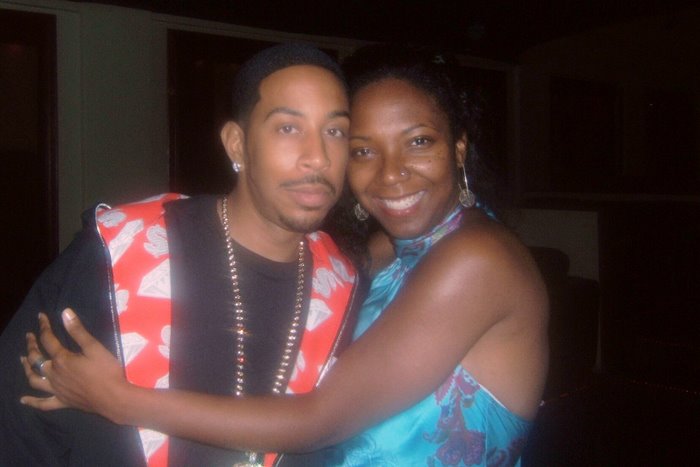
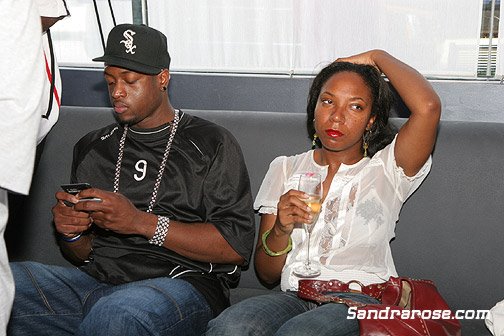
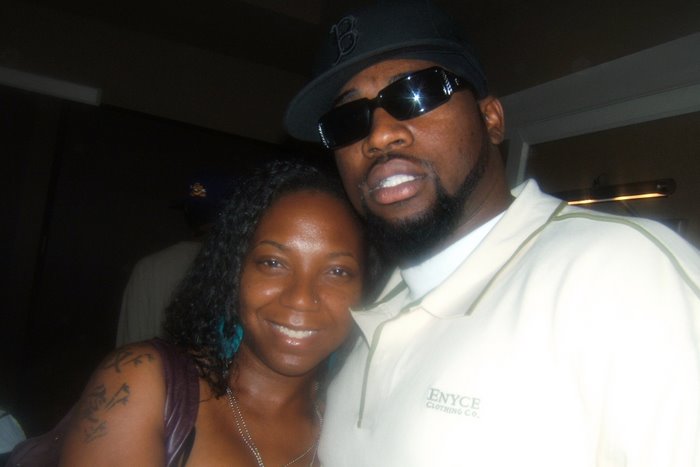
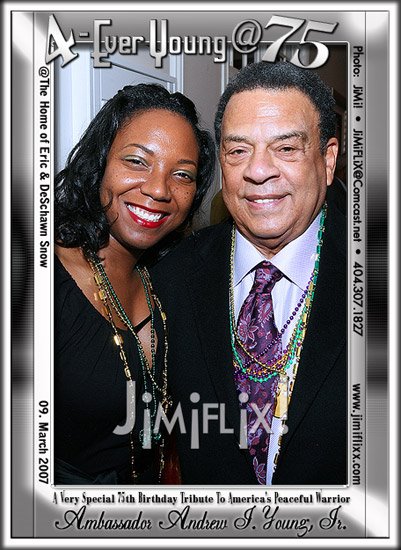

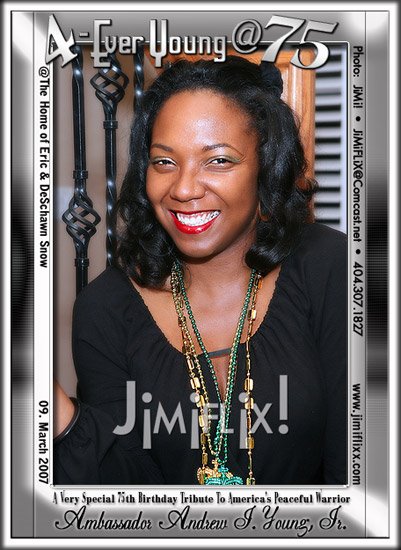
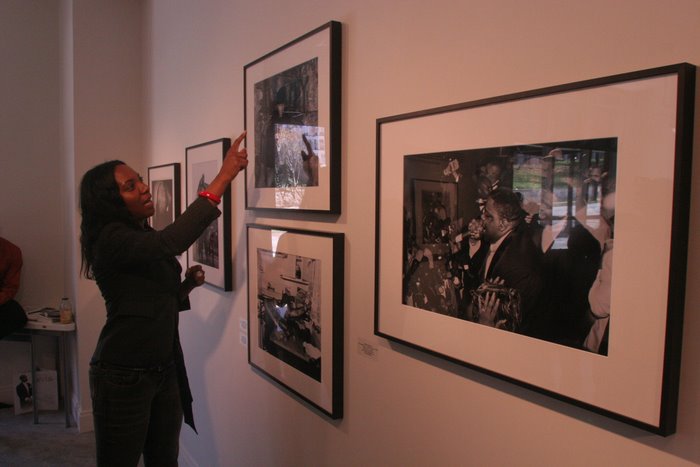

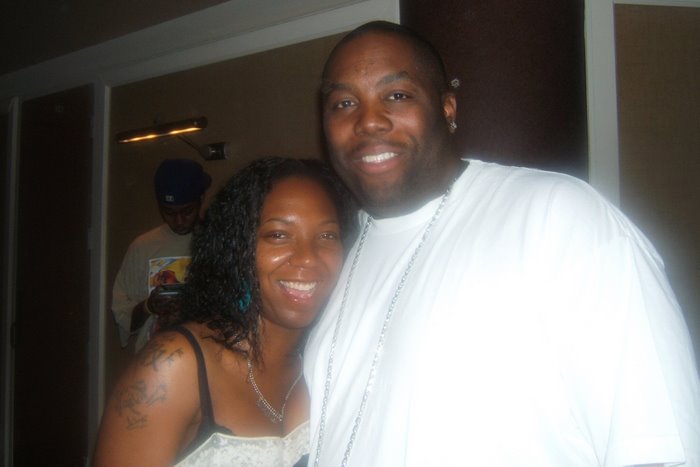
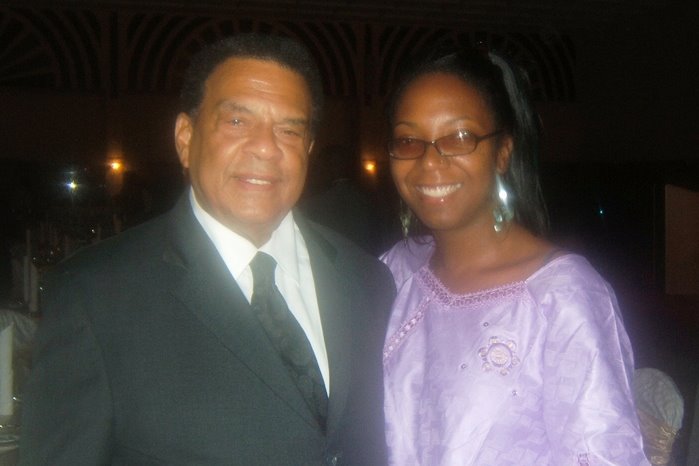
1 comment:
you are dead on with this one dr. joyce.
Post a Comment